
Exciting new series on “Voice, Body and Movement for Lawyers – How to connect with the jury and find Justice Through Dramatic Technique!”
Click here to find out more
The Investment Company Act of 1940 potentially imposes significant regulatory burdens on investment funds. To avoid these constraints, most private equity, venture capital, and hedge funds rely on exemptions under either Section 3(c)(1) or Section 3(c)(7). However, a fund utilizing the Section 3(c)(1) exemption may eventually approach its investor limit (100 or 250, depending on the circumstances) while still seeking to accept new investors. Similarly, a Section 3(c)(7) fund may wish to admit investors who do not qualify as "qualified purchasers."
This program will provide an in-depth exploration of the Section 3(c)(1) and 3(c)(7) exemptions, how to count investors under such exemptions, and discuss how fund sponsors can establish parallel funds to accommodate different investor bases while maintaining regulatory compliance. The discussion will also cover key structuring considerations, potential legal pitfalls, and best practices for fund managers.
This program is designed for fund formation attorneys, as well as in-house counsel at asset managers and investment firms.
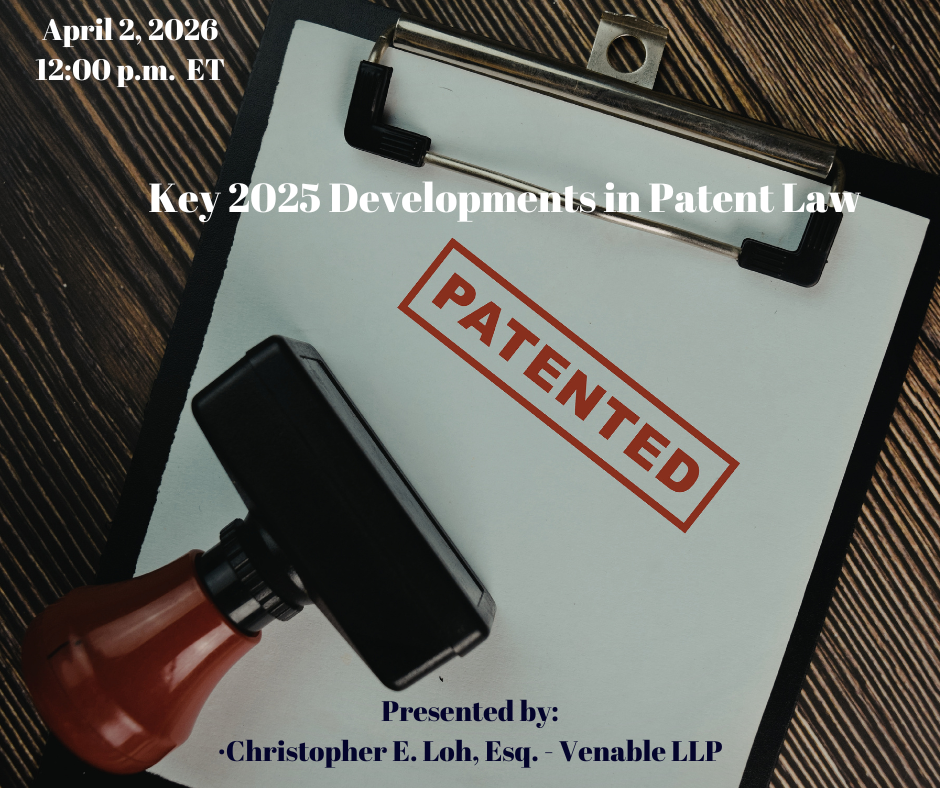
United States patent law and the United States Patent and Trademark Office’s patent-related gu...

This presentation teaches attorneys how to deliver memorized text—especially openings and clos...
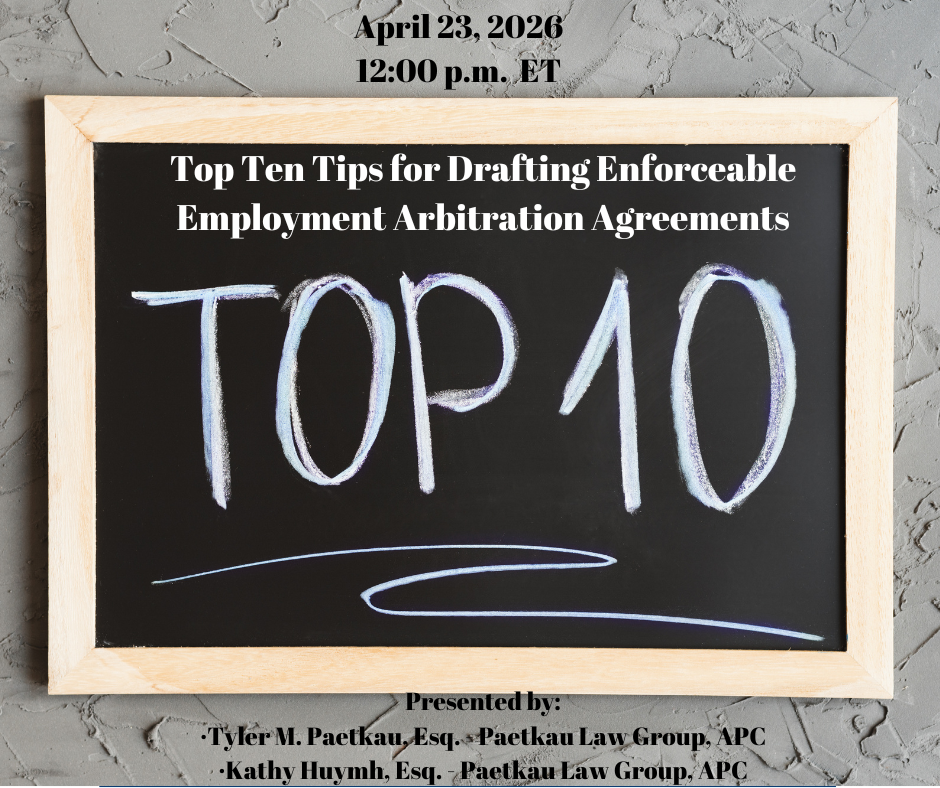
In the rapidly evolving landscape of employment law, arbitration agreements have become a cornerston...
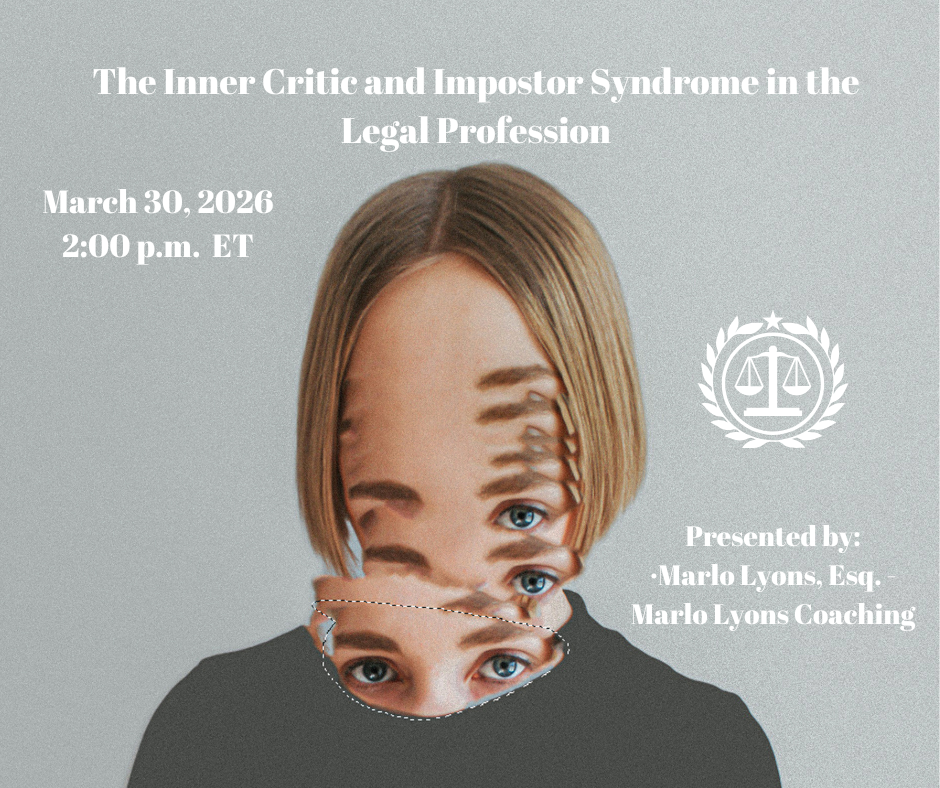
In high-stakes, high-pressure environments like the legal field, even the most accomplished professi...

As artificial intelligence becomes the engine of the global economy, the value of "AI-ready" data ha...
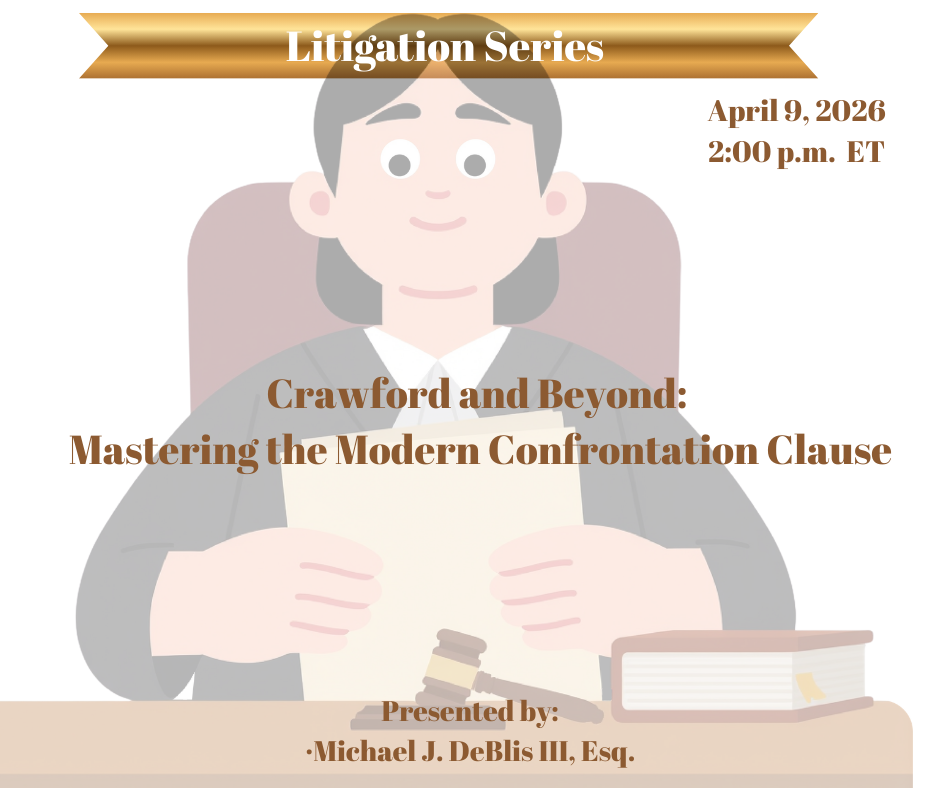
This program provides a comprehensive analysis of the Sixth Amendment Confrontation Clause as reshap...
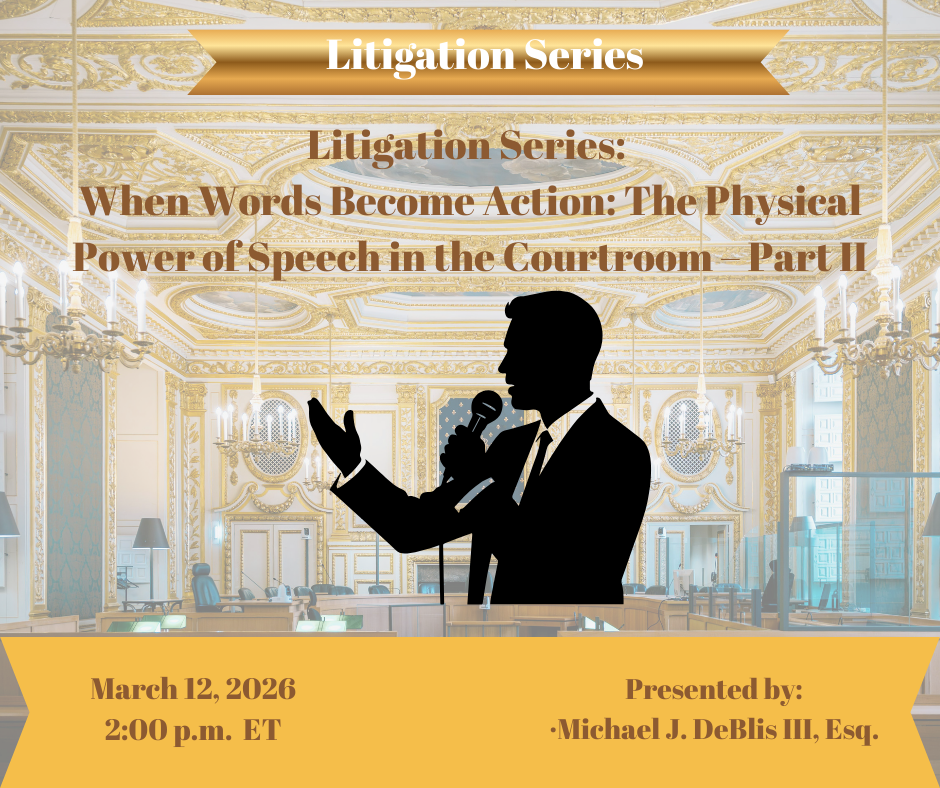
Part II builds on the foundation established in Part I by examining how classical rhetorical styles ...
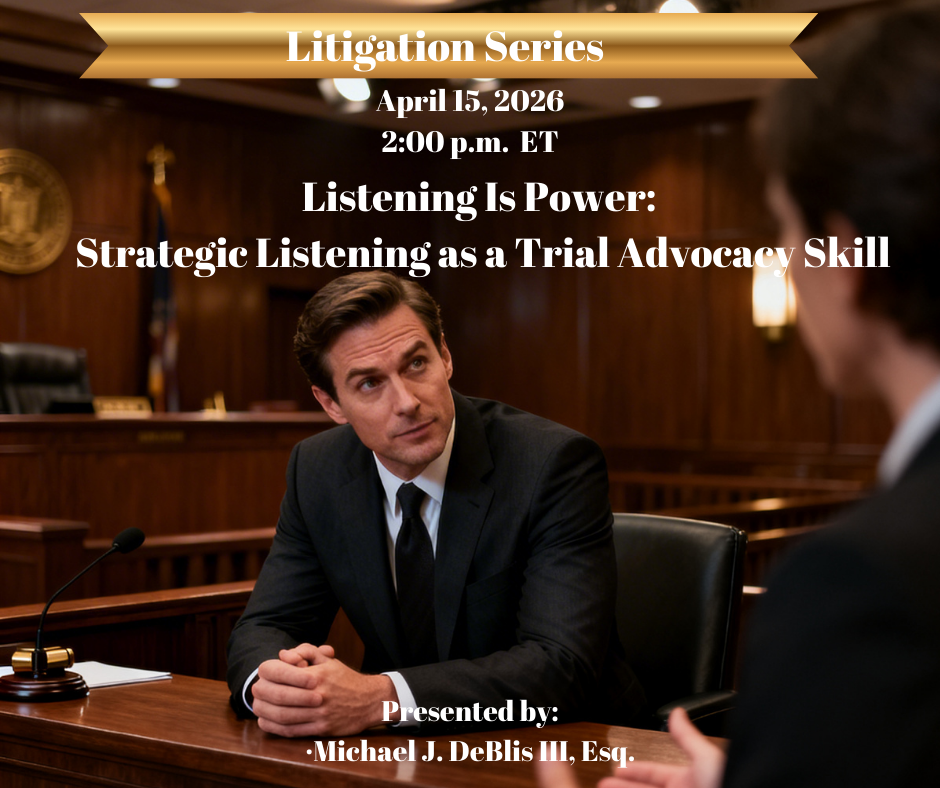
This program examines listening as an active, strategic trial advocacy skill rather than a passive c...

Disasters, whether natural or manmade, happen. Disasters can impact the practice of law and, among o...

Large World Models (LWMs)— the next generation of AI systems capable of generating...